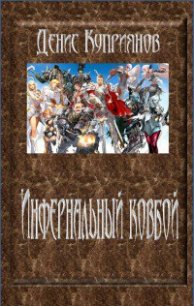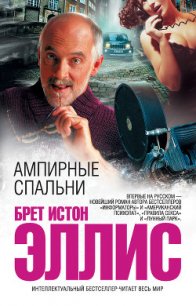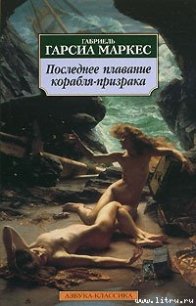The Thinking Machine Affair - Bernard Joel (мир бесплатных книг .txt) 📗
He crossed the quiet, completely deserted street, went straight to the entrance door, and pushed his thumb on the bell button. He heard the shrill sound echo inside the villa.
There was no response to the ringing.
He pressed again and kept on doing so for some time. There was still no answer. He decided to investigate whether the villa was empty or whether the Professor had, perhaps, been taken ill and was unable to answer the call. He moved around the building, peering into the windows of the various rooms and testing the locked doors.
He was looking through a window when he felt the muzzle of a gun in his back. His arms were seized from behind, and then he was handcuffed. All this had been done without a word being spoken by his captors, and it had all been very swift and efficient.
A young man in the uniform of Czech State Security seized his arm and led him round the building towards the exit, still without a word spoken.
"What's the matter? Is everybody dumb?" Napoleon burst out.
But there was no reaction to his questions. Outside the villa, in front of the entrance, stood a State Security van with a uniformed driver at the wheel. Napoleon was pushed in and driven off at considerable speed. Four fierce-looking men with pistols at the ready guarded him. Throughout the journey nothing was said.
The fifteen minutes or so ride in the stuffy van ended at Czech State Security Headquarters where U.N.C.L.E.'S Chief Enforcement Agent was led to an interrogation room.
"What's the reason for your queer hospitality?" Solo barked. He now faced a middle-aged man in the uniform of a Czech State Security Major. "Are you dumb too?"
"Why do you speak with an American accent?" the Major asked in broken English.
"Because I am American."
"American, eh?" the Major mocked. "That's a new one on me."
"If you care to slip your hand into the right-hand pocket inside my jacket you'll find my identification card...
The officer did as requested and extracted Solo's U.N.C.L.E. credentials. "Why didn't you identify yourself as an U.N.C.L.E. Enforcement Officer? You wouldn't have been arrested and brought here," he said at last. He introduced himself as Major Klima.
"I didn't get the chance," Napoleon explained. "Your men grabbed me and pretended to be dumb. I didn't have any other choice than to come along quietly."
"I am sorry," the Major apologized. "You see, they suspected you were one of the gang who snatched Professor Novak and his apparatus, and thought you'd returned to the scene of the crime for some reason, so they brought you here straight away without even searching you."
"Professor Novak was kidnapped?" Napoleon exclaimed. "Any clue to where he might have been taken?"
"Plenty of clues, but if you mean whether he's been found yet, the answer is 'No'," returned Major Klima. "We are treating the matter as a national emergency and every resource, informers and the public, have been mobilized and are engaged in the countrywide manhunt for the Professor and his daughter. At the moment, neither of them has been found. However, rapid developments are imminent."
"I am sure you are right." Napoleon asked for more details of the kidnapping.
"After Vlasta Novak's disappearance we strengthened our security measures at her father's villa," Major Klima went on. "We managed to locate an observant woman who'd witnessed Vlasta Novak being approached by a man who looked like an official driver, and who told her about her father having been involved in a road accident. This witness also described the car, which looked like an official one, and gave us its registration number. The number plate was, of course, a fake."
"Naturally," Napoleon said.
"Having this information, it was clear that Miss Novak had been kidnapped to enable some unknown elements to use her to get to her father and his hush-hush apparatus," Major Klima continued. He told Solo about the concentrated countrywide hunt for the girl; about the stranger's call at Professor Novak's villa, the letter, and the arrest of the stranger; and then added: "We'd hoped to get some clue from the arrested man as to Miss Novak's whereabouts and the gang who'd kidnapped her, but our expectations were shattered. During the short transport from Dejvice to Headquarters here, the man died. No one knows how, but he must have managed to swallow some fast-acting poison."
"Where's the body?" Napoleon asked.
"Why?" Major Klima asked, surprised. "If you think we haven't examined every millimetre of his body and clothing you can forget it. The most extensive forensic examinations yielded no useful result. The body is now in the mortuary. A post-mortem is to be carried out tomorrow morning by our leading pathologist to detect the poison, and the body will then be cremated."
"It never crossed my mind that the body wasn't examined thoroughly for clues," Napoleon assured him, and went on to tell the Czech about the incident at U.N.C.L.E. Headquarters. "I've just been thinking whether this might be an identical case and whether someone might attempt to recover the body for subsequent revival."
"No one made any move to claim the body," Major Klima said. "The public mortuary would have notified us at once. But to set your mind at rest I'll check with them straight away." He did this, and a short while later Napoleon heard him shout into the telephone receiver: "How is that possible? I thought you had everything under proper control!" He banged the receiver down onto its rest and said to Solo: "The body has disappeared! I'll instigate a full-scale enquiry and the mortuary staff will have to account for their negligence."
There was no point in staying at Czech State Security Headquarters any longer. Napoleon took his leave from the cooperative Major Klima, who welcomed his suggestion that they should keep in close contact, promising to afford U.N.C.L.E.'S Chief Enforcement Agent every assistance he required.
It was already twilight when Napoleon left the State Security building, and the street lights transformed the Old Town of the ancient city of Prague into a reminder of medieval times. As he walked along the narrow, winding streets and crossed the picturesque squares, he looked at the age-old buildings and frequently stopped to admire the unusual stuccos on some of the architectural relics of by-gone times. He loved the atmosphere that seemed to hang in the air and made frequent detours to explore more of the city. He stopped at every statue on the long and narrow Charles Bridge, admiring the beauty of the ancient creations, and then went to Kampa Island, looking fascinated at the river Moldau and the panorama of Hradcany castle—the ancient seat of Czech kings—with the St. Vitus Cathedral looking down on the city.
Passing eventually the blackish-grey Powder Tower with its square green copper roofing, and crossing into Poric Street, he found himself in twentieth-century Prague, with its noisy trams rattling along the rails in the middle of the road and cars and lorries rushing along, hooting frequently, the drivers swearing at each other now and again as drivers do the world over. He was struck by the contrast between the old and the new, but thought there was plenty of room for improvement in the Czech capital—by doing away with the outdated tramcars and by improving the traffic problem.
He reached the Axa Hotel without incident and was allocated the room that had been reserved for him. The bellboy led him to the elevator and took him to his room on the second floor at the end of the corridor.




